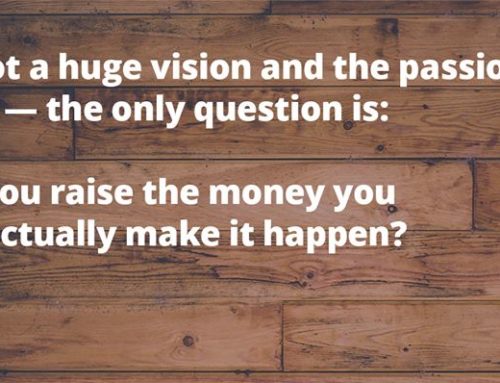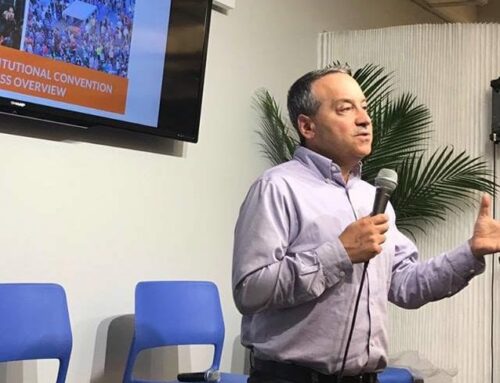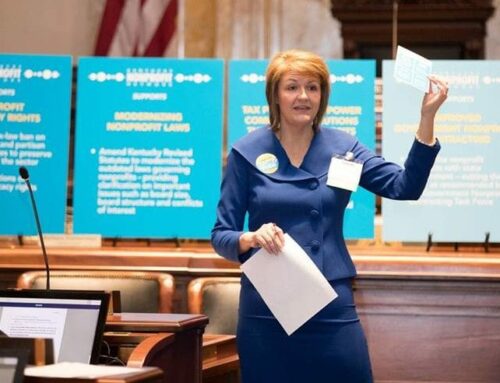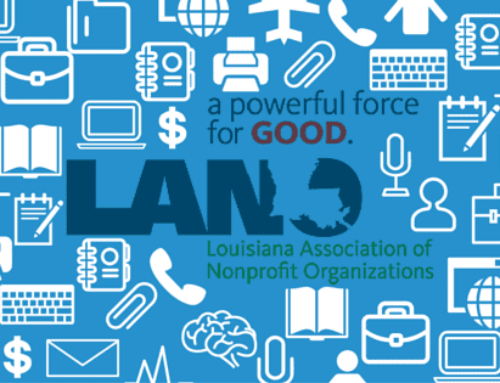Fundraising is not generally a favored topic in the nonprofit sector. For Claire Axelrad, J.D., CFRE however, it’s the main topic of conversation. As a consultant, speaker, and coach for nonprofit leaders, Axelrad assists organizations as they talk about and set up their fundraising and marketing processes. Although she didn’t start out working with nonprofits, the switch seems to have been a natural progression. Axelrad began her professional life as an attorney looking to help others. In the actual work, however, she didn’t find this desire being fulfilled.
“I found out there wasn’t a lot of genuine helping going on,” Axelrad says. “It was a lot of procedural stuff, and whoever spent the most money tended to win.” She wanted to work in a field where she actually helped others, and didn’t just have a title that implied it. So she began considering other options, like public affairs and journalism.
During Axelrad’s search for a new career, someone commented that she would be good at nonprofit “development.” Following the conversation, she went home and researched the new-to-her field, which she agreed matched her interests and skills. After attending courses on the subject and learning best practices, she went on to lead development and marketing for five organizations over a span of three decades.
As Axelrad transitioned into her own nonprofit coaching practice, the Internet changed the landscape. Axelrad discovered a love for sharing content with others using this growing technology. Even before the Internet, Axelrad had been known to photocopy articles, scribble notes in their margins, and send them to people she thought would be interested. Now at the start of the digital era, she was learning how beneficial the Internet could be in promoting ideas. The web was revolutionizing how marketing and fundraising was done.
One way Axelrad herself utilized the Internet was starting her own blog. She loved writing and sharing with others. Her blog led to teaching, leading online courses, and coaching those looking to improve their nonprofit process. Now, Axelrad helps nonprofits of all shapes and sizes through her online Clairification School. Her goal is to help nonprofits see fundraising exists within a broader context of values, and should by no means be an avoided topic.
“All of your development strategies are to help uncover the values people have, and find people who share the values your organization enacts,” Axelrad says. Once you find the values intersection, fundraising is simply the process of making the match – connecting like-minded people with opportunities to express their values through philanthropy.
“All of your development strategies are to help uncover the values people have, and find people who share the values your organization enacts.” – Claire Axelrad, J.D., CFRE
Axelrad hopes to see organizations stop viewing acquiring funds as merely transactional, and rather start seeing the process as transformational for the organization and for the donors themselves. Donors need to know their contributions matter. Through donors’ monetary support, their own values are taking shape in actions. As much as the donors have to give, the organizations also give donors the opportunity to see their visions enacted.
“You are helping people be the people they want to be,” Axelrad says to encourage nonprofits. “You are helping them be heroes.” Once organizations begin the process of bringing in revenue, Axelrad encourages them to bring their fundraising and program teams together. As the fundraising team brings in revenue to sustain programs, the programs can offer important stories to the fundraising team. This process is an important part of building a relationship with donors.
“Sending a thank you letter is not a relationship,” Axelrad insists. As in any relationship, it must be more consistent than that. Axelrad mentions that on average, a mere 23% of first time donors renew with the organization. To improve this statistic within organizations, she promotes new ways of talking about fundraising.
One of the first statements on her website reads, “Philanthropy, not fundraising.” Why does she insist on the specification? Axelrad explains that “philanthropy” is translated from Greek to mean “love of humankind” or, per Bob Peyton, Founder of the Lilly School of Philanthropy, “voluntary action for the public good.” These definitions capture the true heart of these organizations, and of the donors who make their work possible. Discussions of fundraising and questions of money, however, do not evoke the same pleasant feelings.
“Philanthropy, not fundraising.” – Claire Axelrad, J.D., CFRE
“Money is a taboo subject in our culture,” Axelrad observes. The idea of “fundraising” has negative connotations, and she has seen this firsthand. At speaking sessions, she will ask her audience what “fundraising” brings to mind. She has received responses anywhere from “scary” to “rude” to “yucky.”
On the other hand, when asked about “philanthropy,” the associations are overwhelmingly positive: “good,” “inspiring,” and even “necessary.” For Axelrad, these are all words that match the work her clients are doing. Their work is important. Their work is necessary.
“We shouldn’t call ourselves ‘nonprofits,’” she says. “That describes what we are not, not what we are.” Instead, Axelrad sees a change in label as an opportunity to promote the significance of these organizations in society.
“We should be called ‘social benefit’ organizations,” she suggests. This rebranding captures the heart of Axelrad’s message. As passionate as those working directly for these missions are, so are their donors who give freely and voluntarily. Because they come from a place of love. They believe. Fundraising is a privilege that is earned whenever and wherever organizations are making a positive impact for the public good. Fundraising is also a responsibility, because without it those who rely on social benefit organizations would be worse off, and the world would be a sadder and poorer place.





